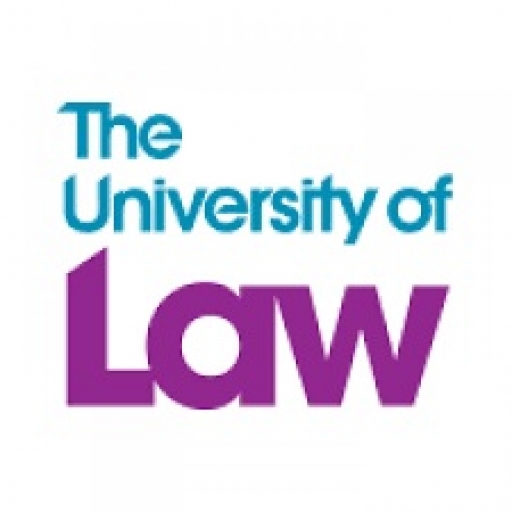The Law Conversion Course — Legal Studies Common Professional Exam (CPE) at London South Bank University offers a comprehensive pathway for individuals seeking to transition into the legal profession. Designed for graduates from diverse academic backgrounds, this program provides an intensive foundation in core legal principles and practical skills essential for a career in law. The curriculum covers a wide range of topics, including constitutional law, criminal law, contract law, tort law, administrative law, and legal research and writing. Throughout the course, students develop critical analytical skills, understand legal procedures, and learn to apply legal reasoning effectively, preparing them for professional legal practice or further legal studies.
Delivered through a combination of lectures, seminars, workshops, and real-world case studies, the program encourages active participation and practical engagement with legal materials. Students also benefit from access to extensive legal databases and resources, enhancing their research capabilities. The course structure is designed to be flexible, accommodating the needs of mature students and those balancing other commitments, with options for part-time study. Successful completion of the program results in a qualification recognized as a Common Professional Examination (CPE), which is a crucial step towards becoming a qualified solicitor or barrister in England and Wales.
The program also emphasizes ethical considerations and professional responsibility, preparing students to meet the standards required by legal regulators. Dedicated support is provided throughout the course, including academic guidance, career advice, and opportunities for networking within the legal community. Whether aiming to pursue further legal training, such as the Legal Practice Course (LPC) or Bar Professional Training Course (BPTC), or seeking to enhance legal knowledge for other professional roles, the Law Conversion Course — Legal Studies CPE at London South Bank University offers a rigorous, supportive environment to achieve those goals. It is an ideal choice for individuals committed to entering the legal field and dedicated to developing the competencies needed for successful legal practice.
The Law Conversion Course — Legal Studies Common Professional Examination (CPE) at London South Bank University offers a comprehensive and rigorous curriculum designed to equip students with the foundational legal knowledge required to pursue a career in law. This intensive programme provides an in-depth overview of key areas of law, including constitutional and administrative law, criminal law, contract law, tort law, property law, and equity and trusts. Throughout the course, students will develop essential legal skills such as legal research, case analysis, legal writing, and advocacy, which are critical for success in legal practice.
The programme is structured to ensure learners gain a thorough understanding of the core principles that underpin the legal system. The modules are carefully designed to combine theoretical concepts with practical applications, enabling students to apply legal reasoning and problem-solving skills in real-world contexts. As part of the course, students will engage with a wide range of teaching methods, including lectures, seminars, workshops, and group discussions, fostering a collaborative learning environment. There is also an emphasis on developing critical thinking, analytical abilities, and ethical understanding necessary for responsible legal practice.
Students will also learn about substantive law, legal processes, and the functioning of the judiciary and legal institutions. The course prepares students for professional legal training and offers a solid foundation for those seeking to take the Solicitors Qualifying Examination (SQE) or Bar Professional Training Course (BPTC). Graduates of this Conversion Course are well-positioned to pursue various legal careers, including solicitor or barrister roles, legal consultancy, or other legal advisory positions.
In addition to academic learning, the programme encourages students to engage with contemporary legal issues and debates, fostering an awareness of how law interacts with societal change. The university provides excellent academic support, including access to extensive legal resources, practical workshops, and opportunities for placements and networking within the legal community. Overall, the Law Conversion Course — Legal Studies Common Professional Examination (CPE) at London South Bank University aims to prepare students thoroughly for the next stage of their legal careers with a balanced mix of theoretical knowledge and practical skills necessary for success in the legal profession.
The London South Bank University Law Conversion Course — Legal Studies Common Professional Exam (CPE) requires applicants to hold a recognized undergraduate degree in any discipline, demonstrating academic ability and critical thinking skills. Applicants must submit an application form along with personal statement outlining their motivation for undertaking the conversion course and relevant skills or experience. Prior to admission, candidates are typically expected to have proficiency in English, evidenced by a valid English language test score if English is not their first language. The course is designed to accommodate students from diverse academic backgrounds, providing the necessary knowledge to qualify for a career in law. Enrolment may also require passing an interview or assessment to evaluate the candidate’s motivation and potential for success in the legal field. The program emphasizes the development of core legal skills, including understanding of law principles, legal research, and analytical reasoning. It covers essential areas such as constitutional and administrative law, criminal law, contract law, tort law, European Union law, and property law. To successfully complete the course, students are expected to attend lectures, participate in seminars and workshops, and undertake independent study and research assignments. Assessment is primarily through written examinations, coursework, and practical exercises reflecting real-world legal scenarios. The program aims to prepare students for admission to vocational training or pupillage, as well as qualifying examinations required for a legal career. Graduates are expected to demonstrate a comprehensive understanding of legal principles, strong analytical capabilities, and the ability to apply legal knowledge effectively. The course duration, entry points, and specific admission deadlines are available via the university’s official website. Prospective students should consult the official programme description to ensure they meet all eligibility criteria and understand the registration process.
The Law Conversion Course — Legal Studies Common Professional Exam (CPE) at London South Bank University offers a range of financing options to support students throughout their studies. Prospective students are encouraged to explore various sources of funding to help cover tuition fees and living expenses. The university participates in government-backed student loan schemes, including Undergraduate Finance, which allows eligible students to access loans to pay for tuition fees and maintenance costs. These loans typically have favorable repayment conditions, with repayment commencing once the graduate’s income exceeds a certain threshold. Additionally, students can apply for postgraduate loans, which may be available depending on specific eligibility criteria and the type of course pursued. Scholarships and bursaries are also offered by London South Bank University to assist students demonstrating academic excellence or financial need. Applicants are advised to check the university’s official website for the most current information on available financial support, as criteria and application procedures may vary each academic year. External funding opportunities are available through legal professional bodies, charities, and external grant schemes, which can provide additional financial assistance. It is recommended that students start their funding applications early to meet all deadlines and maximize their chances of securing support. The university’s financial aid office provides guidance and support to help students navigate the application process, understand their financing options, and manage their funding responsibilities effectively. Many students also consider part-time work opportunities and external employment to supplement their income during the course. Overall, thorough planning and early engagement with financial advisors at London South Bank University can significantly ease the financial burden of completing the Law Conversion Course — Legal Studies CPE, enabling students to focus on their academics and professional development.
The Law Conversion Course — Legal Studies Common Professional Exam (CPE) at London South Bank University is a postgraduate law qualification designed for individuals who hold a degree in a subject other than law and wish to transition into a legal career. The program provides a comprehensive overview of core legal principles, covering areas such as contract law, criminal law, constitutional law, property law, and tort law. It is structured to prepare students for the subsequent training process necessary to qualify as a solicitor or barrister in England and Wales. The course typically spans one academic year if studied full-time, or two years part-time, offering flexibility to accommodate students' professional and personal commitments. The curriculum emphasizes both theoretical understanding and practical skills, including legal research, critical analysis, and legal writing, which are essential for effective practice in the legal field.
Students enrolled in this program have access to well-equipped facilities, including dedicated legal research libraries, simulation courts, and online learning resources. The teaching staff are experienced academics and practicing solicitors or barristers, bringing a blend of academic rigor and real-world legal experience. Assessment methods include written examinations, coursework, and sometimes practical legal skills assessments, aiming to evaluate students' understanding, analytical abilities, and practical competencies. Successful completion of the course qualifies students to undertake the Legal Practice Course (LPC) or Bar Practice Course (BPC), which are mandatory for qualifying as a solicitor or barrister respectively. The program is accredited by the Solicitors Regulation Authority and the Bar Standards Board, ensuring recognition within the legal profession. Career prospects post-completion include roles in law firms, legal departments, public sector organizations, and judiciary services. The university also offers career support services, including internships, networking events, and guidance on professional development. The program ultimately aims to facilitate a smooth transition for non-law graduates to become qualified legal professionals, equipping them with both the academic foundation and practical skills needed for a successful legal career.






